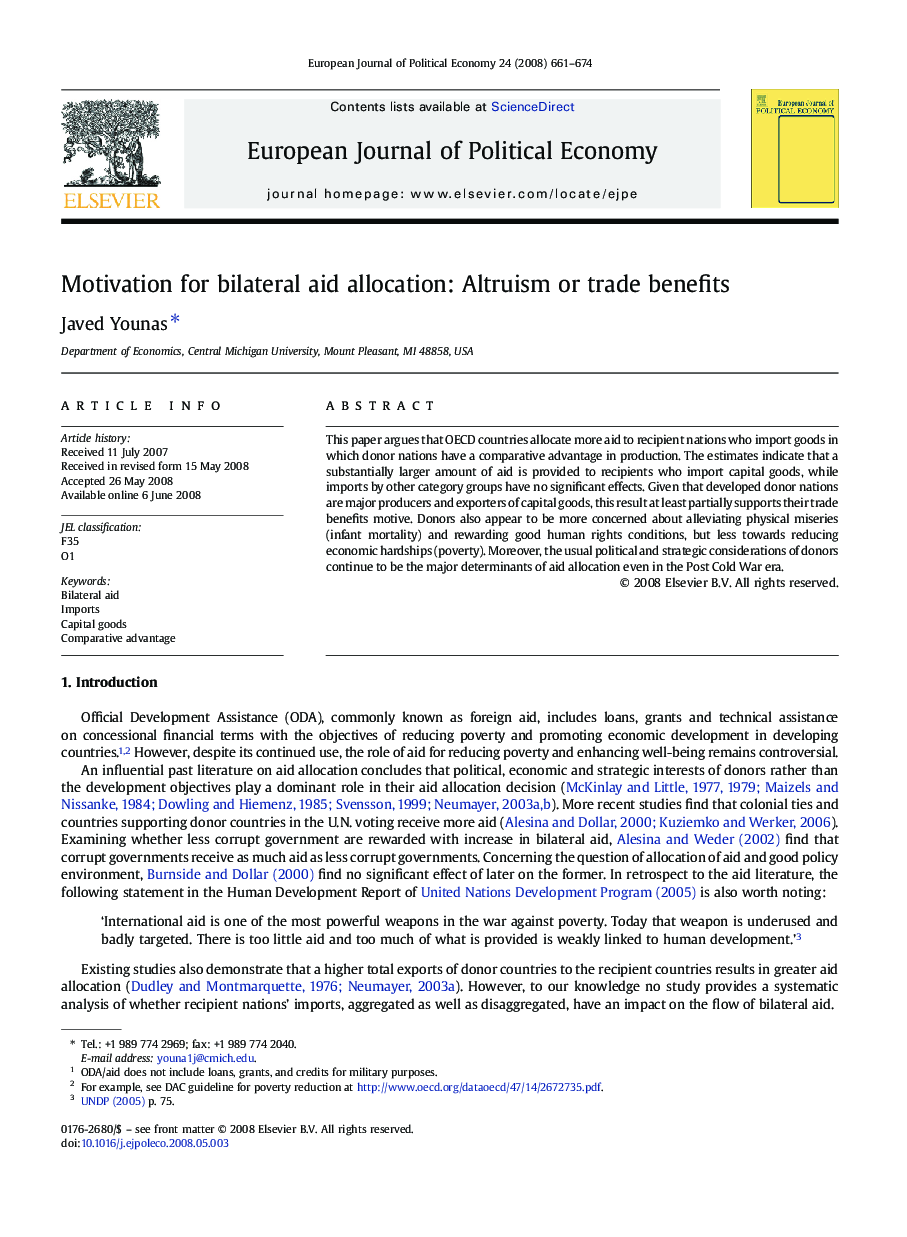| Article ID | Journal | Published Year | Pages | File Type |
|---|---|---|---|---|
| 5068301 | European Journal of Political Economy | 2008 | 14 Pages |
Abstract
This paper argues that OECD countries allocate more aid to recipient nations who import goods in which donor nations have a comparative advantage in production. The estimates indicate that a substantially larger amount of aid is provided to recipients who import capital goods, while imports by other category groups have no significant effects. Given that developed donor nations are major producers and exporters of capital goods, this result at least partially supports their trade benefits motive. Donors also appear to be more concerned about alleviating physical miseries (infant mortality) and rewarding good human rights conditions, but less towards reducing economic hardships (poverty). Moreover, the usual political and strategic considerations of donors continue to be the major determinants of aid allocation even in the Post Cold War era.
Related Topics
Social Sciences and Humanities
Economics, Econometrics and Finance
Economics and Econometrics
Authors
Javed Younas,
